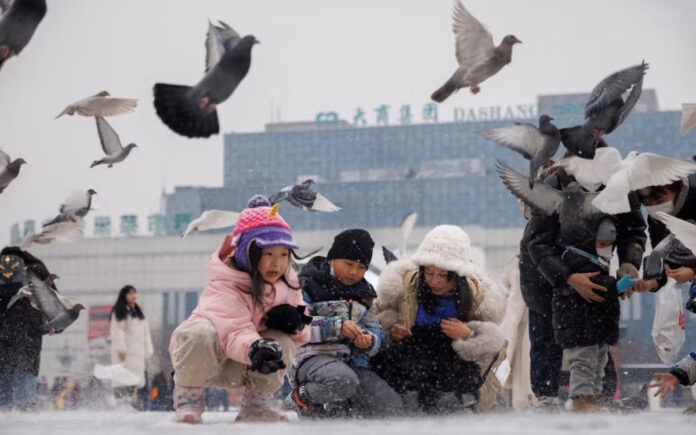Beijing: China has officially ended its practice of allowing foreign adoptions, marking the end of a policy that spanned over 30 years. The decision comes as part of China’s efforts to align with global trends, effectively reversing a practice that was originally rooted in the country’s one-child policy, which lasted from 1979 to 2015.
Since opening to international adoptions in 1992, China has sent over 160,000 children to families around the world. Of these, around 82,000 children—most of them girls—were adopted by families in the United States, according to China’s Children International (CCI).
On Thursday, Foreign Ministry Spokeswoman Mao Ning confirmed the government’s decision, stating that China’s cross-border adoption policy had been adjusted “in line” with current international practices. “Apart from the adoption of a child or stepchild of blood relatives of the same generation who are within three generations of foreigners coming to China to adopt, China will not send children abroad for adoption,” Mao said in a statement. She also expressed gratitude to foreign governments and families who had previously adopted Chinese children, acknowledging their goodwill and kindness.
The announcement leaves uncertainty for families currently in the process of adopting children from China. No specific details have been provided on how this policy shift will affect ongoing adoption cases.
China’s decision to halt international adoptions is part of a broader effort to address its declining birth rate and encourage domestic family growth. The country has seen its population shrink for two consecutive years, and Chinese policymakers are working to incentivize marriage and childbirth in a country known for one of the lowest birth rates in the world.
Also Read | Judge Delays Trump’s Hush Money Sentencing Until After Election
Despite efforts to encourage young couples to have children, many women remain reluctant due to concerns over the high cost of living, job security, and the slowing economy. China has been particularly focused on addressing these concerns as growth in the world’s second-largest economy has decelerated.
China’s one-child policy, aimed at controlling population growth, led many families to prioritize having male children due to traditional expectations that males would care for aging parents. As a result, many female infants were given up for adoption, contributing to the large number of international adoptions.
China’s decision mirrors similar moves in other countries. In May, the Netherlands banned its citizens from adopting children from foreign countries. Denmark is also ending foreign adoptions, with the country’s only adoption agency recently ceasing its operations.



